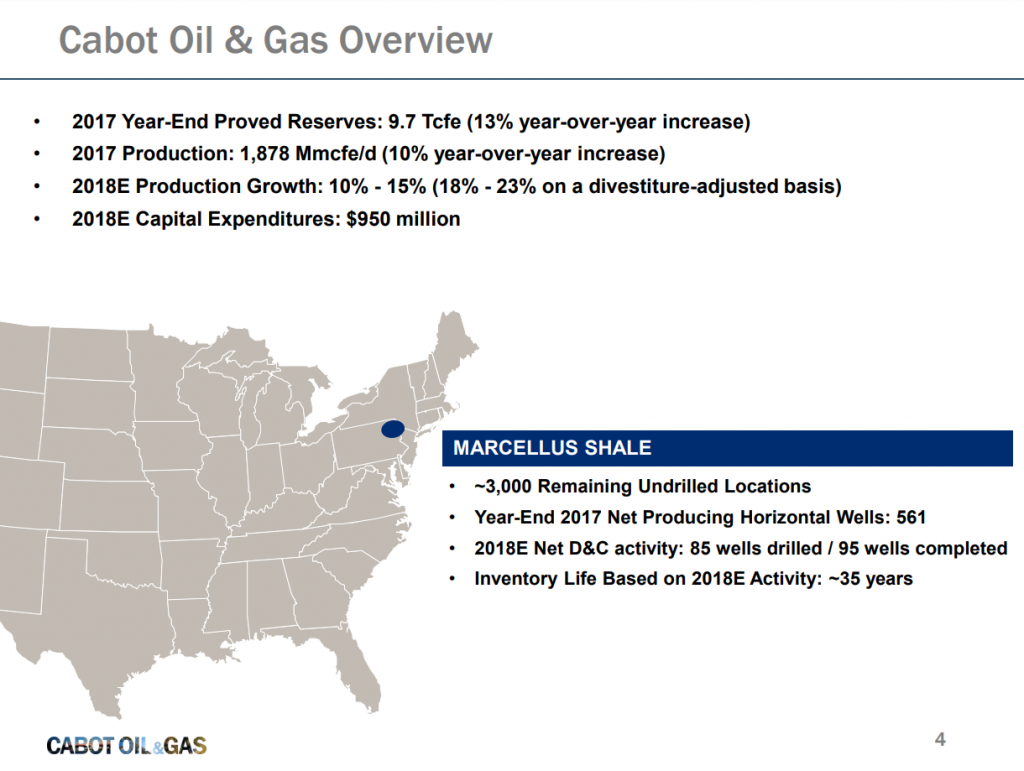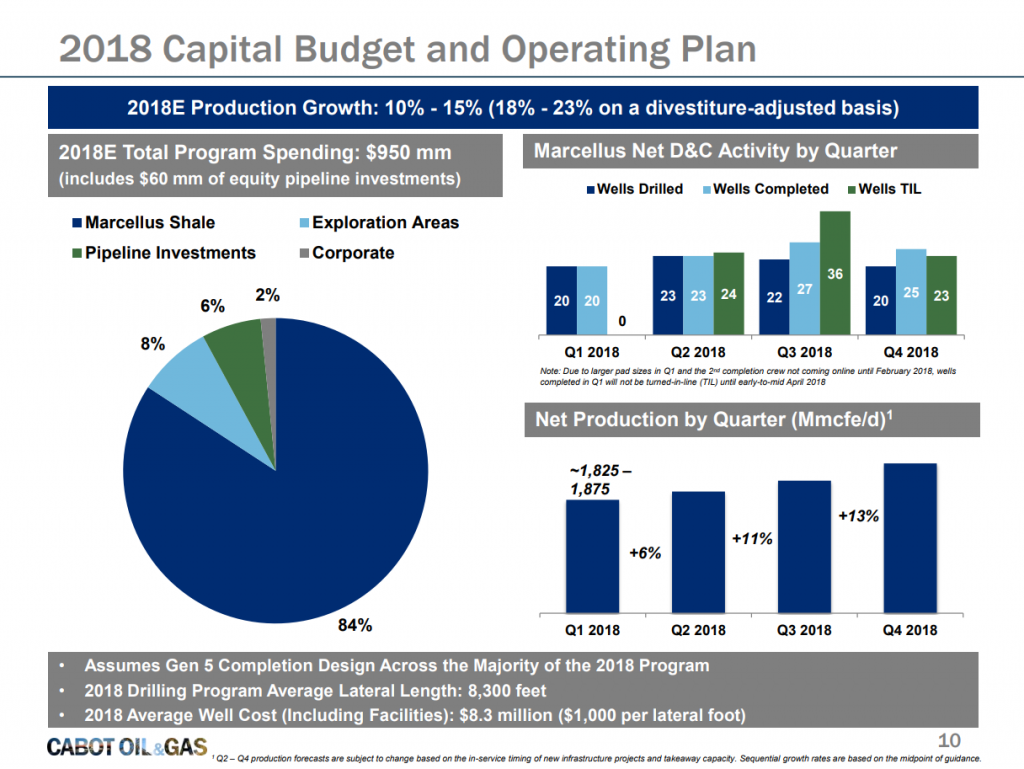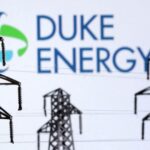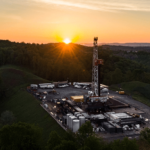Cabot Oil & Gas Corporation (ticker: COG) produced 685.3 Bcfe in 2017. The production mix consisted of 655.6 Bcf of natural gas, 4,440.9 Mbbls of crude oil and condensate and 512.1 Mbbls of NGLs.
Cabot incurred a total of $757.2 million of capital expenditures in 2017, including $637.2 million of drilling and facilities capital associated with drilling 91 gross (82.5 net) wells and completing 105 gross (94.2 net) wells.
Additionally, $102.3 million of leasehold acquisition capital was spent in association with the company’s leasing efforts in two new exploratory operating areas, and $17.7 million of other capital was spent, Cabot said. The company also contributed $57.0 million to its equity pipeline investments in 2017.

Full year 2017 net income was $100.4 million, or $0.22 per share, compared to a net loss of $417.1 million, or $(0.91) per share, in 2016.
Fourth quarter 2017 net loss was $44.4 million, or $(0.10) per share, compared to net loss of $292.8 million, or $(0.63) per share, in the prior-year period. At year-end 2017, Cabot had total debt of $1.5 billion and cash on hand of $480.0 million.
Fourth quarter 2017 equivalent production was 172.6 Bcfe, which consisted of 164.4 Bcf of natural gas, 1,238.0 Mbbls of crude oil and condensate and 131.5 Mbbls of NGLs.
Cabot incurred a total of $174.5 million of capital expenditures in the fourth quarter of 2017, including $162.0 million of drilling and facilities capital associated with drilling 20 gross (20.0 net) wells and completing 24 gross (24.0 net) wells, $4.4 million of leasehold acquisition capital and $8.1 million of other capital was spent.
Tax cuts
As a result of the Tax Act, Cabot recorded an income tax benefit of $242.9 million in the fourth quarter of 2017. As of December 31, 2017, the company had AMT credit carryforwards of $208.6 million, which do not expire and can be used to offset regular income taxes in future years, Cabot said.
Under the new Tax Act, the company may claim a refund of 50% of the remaining AMT credits (to the extent the credits exceed regular tax for the year) in 2018, 2019 and 2020. Any AMT credits remaining after 2020 will be refunded in 2021.
The company expects a net refund of $97.1 million related to 2018.
Reserves
Cabot reported year-end proved reserves of 9.7 Tcfe, an increase of 13% over year-end 2016.
- Total company all-sources finding and development costs of $0.35 per Mcfe
- Marcellus-only all-sources finding and development costs of $0.22 per Mcf
- Total company all-sources reserve replacement of 316%
- Marcellus-only all-sources reserve replacement of 305%
As of December 31, 2017, 96% of Cabot’s year-end proved reserves were natural gas and 96% were located in the Marcellus Shale. Approximately 64% of the year-end proved reserves were classified as proved developed and 36% were classified as PUD, including eight% of drilled and uncompleted PUDs.
Total costs incurred during 2017 were $761.0 million, which included $617.5 million for development costs, $41.2 million for exploration costs and $102.3 million for lease acquisition costs.
2018
Cabot has provided first quarter 2018 net production guidance of 1,775-1,825 Mmcf/d for natural gas, 7,500-8,000 Bbls/d for crude oil and condensate and 700-800 Bbls/d for NGLs. This guidance range assumes a February 28, 2018 closing date for the company’s previously announced Eagle Ford divestiture.
Cabot has reaffirmed its 2018 daily production growth guidance of 10-15% (18-23% on a divestiture-adjusted basis to reflect the impact of the previously announced Eagle Ford, East Texas and West Virginia dispositions).
The company has also updated its capital budget to $950 million:
- Marcellus – $800 million
- Exploration – $75 million
- Pipeline investments – $60 million
- Corporate-related – $15 million
The company plans to average three rigs and two completion crews in the Marcellus during 2018, resulting in 85 net wells drilled and 95 net wells completed. The average lateral length for the 2018 Marcellus drilling program is 8,300 feet and the expected average well cost is $8.3 million ($1,000 per foot) for drilling, completion and facilities.
“Our Generation 5 wells continue to track our 4.4 Bcf per 1,000 lateral feet type curve, which gives us the confidence to implement this well design across the majority of our program moving forward due to the improved economics from this more capital-efficient design,” said President and CEO Dan O. Dinges.








